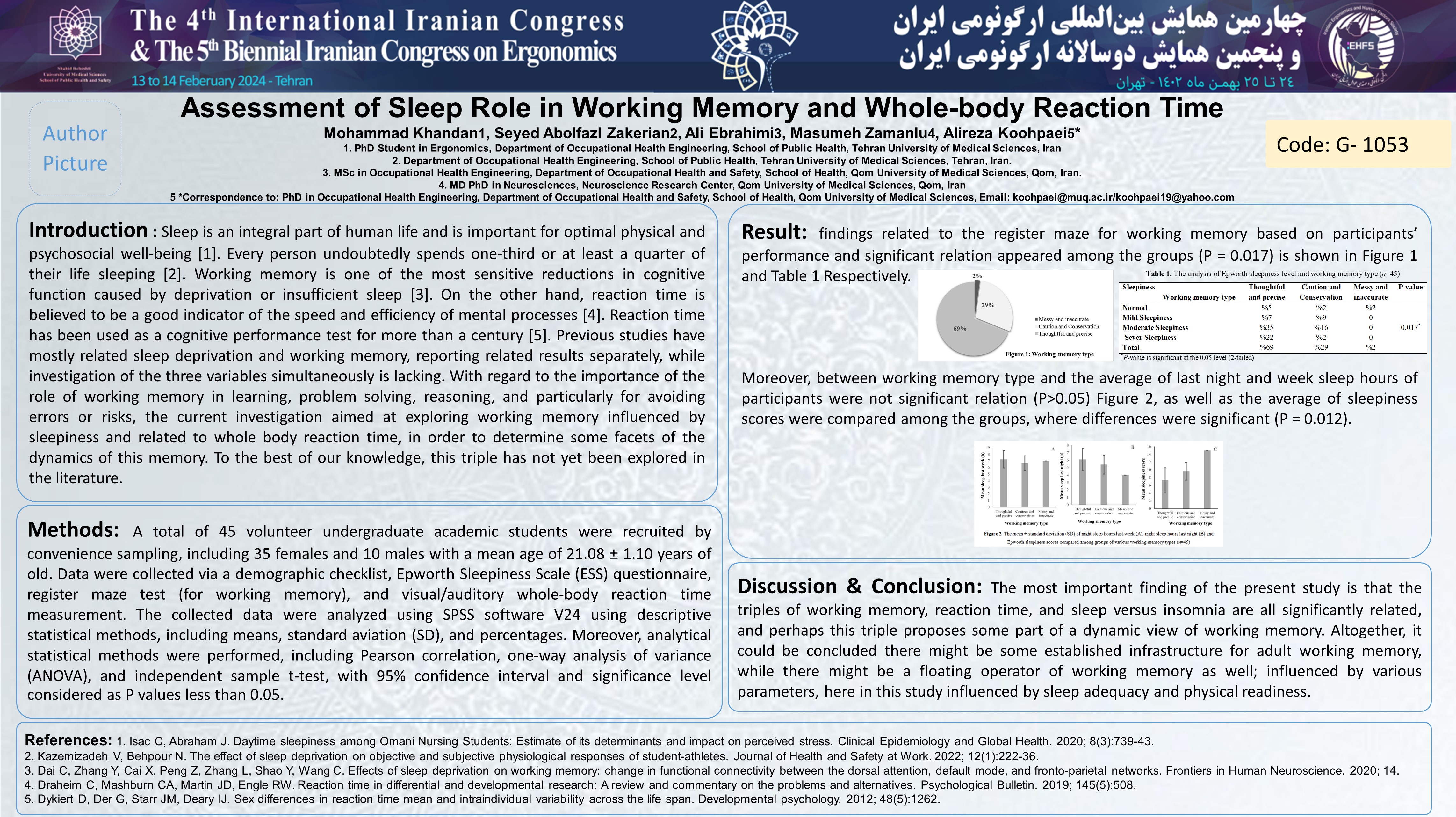Assessment of sleep role in working memory and whole-body reaction time
Code: G-1053
Authors: Mohammad Khandan ℗, Seyed Abolfazl Zakerian, Ali Ebrahimi, Masumeh Zamanlu, Alireza Koohpaei ©
Schedule: Not Scheduled!
Download: Download Poster
Abstract:
Introduction
Introduction: Sleep provides physical and mental strength, and natural sleep is essential for cell growth, strengthening, stabilizing, and accelerating the improvement of memory function. The current investigation aimed to explore working memory influenced by sleepiness and related to whole-body reaction time, in order to identify some facets of the dynamics of this memory. To the best of our knowledge, this triple has not yet been explored in the literature.
Methods and Materials / Case Report
Materials & Methods: A total of 45 volunteer undergraduate academic students were recruited by convenience sampling, including 35 females and 10 males with a mean age of 21.08 ± 1.10 years of old. Data were collected via a demographic checklist, Epworth Sleepiness Scale (ESS) questionnaire, register maze test (for working memory), and visual/auditory whole-body reaction time measurement.
Results
Results: The working memory of each subject was divided into three types:1) thoughtful and precise, 2) Cautious and Conservative, and 3) messy and inaccurate. The triple of working memory, reaction time, and sleep versus sleepiness were all significantly related (P=0.017–0.05).
Conclusion
Conclusion: The authors concluded that there might be some established infrastructure for adult working memory, while there might be a floating operator of working memory as well; influenced by various parameters, this study was influenced by sleep adequacy and physical readiness.
Key Words
Sleepiness, Working memory, Whole-body reaction time, Academic students.
Comments (0)
Post a comment
Post comment is closed by admin.
